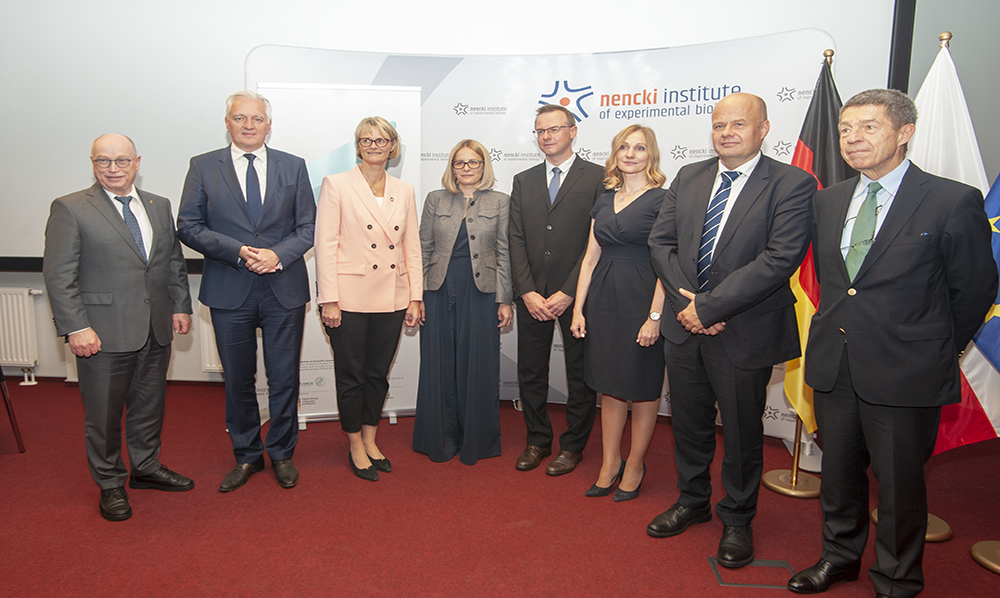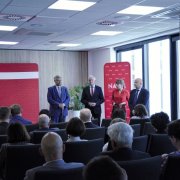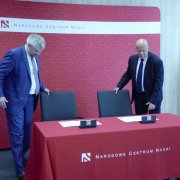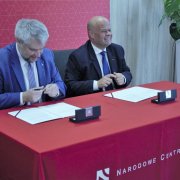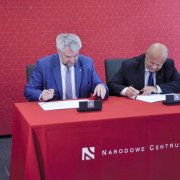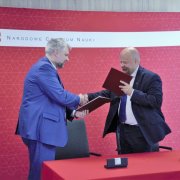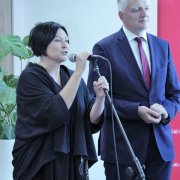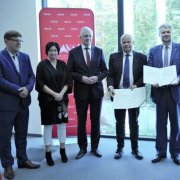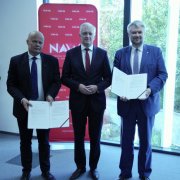The NCN and the NCBR announce TANGO 4, another opportunity for the implementation of Polish basic research
The National Science Centre (NCN) and the National Centre for Research and Development (NCBR) jointly announce the fourth edition of the TANGO call, designed to support the development of technologies based on basic research results. The total budget of the call equals 30 million PLN. Proposals will be accepted from 29 November 2019 until 30 June 2020.
The main objective of the joint initiative is to boost the commercialisation of technologies based on basic research results obtained in initial projects and, in particular, to draw up a plan for the development of technologies based on basic research results and increase the involvement of enterprises in the process.
Cooperation between science and business is an absolute must, but for it to grow, appropriate conditions must first be ensured. Contrary to what the name of the call may suggest, it takes more than two to TANGO; alongside business and science, administration also has an important role to play. This is why we don't just talk the talk but also walk the walk, as best evidenced by the Constitution for Science, R&D tax breaks for enterprises, and modified support programmes, such as TANGO, carried out by the NCBR. I hope that projects conducted within the framework of the new edition of TANGO will help start a good cooperation between research centres and Polish companies, says Jarosław Gowin, Deputy Prime Minister, Minister of Science and Higher Education.
Three tracks of submitting proposals, increased budgets – changes to TANGO
Funding in TANGO4 may be requested under one of three tracks, depending on the research stage of the initial project:
- Track A is open to projects aimed at exploring the practical application of basic research results and finding an industrial partner for further project implementation. Funding will cover concept and R&D work. Project proposals can only be submitted by academic or research organisations.
- Track B is open to applicants who have terminated TANGO 1 or TANGO 2 projects at the concept phase (Phase K) due to the lack of an industrial partner. Funding will also be available to those who have previously won grants within the framework of TANGO 3 or TANGO 4 (Track A). Funding will cover industrial research and development work designed to continue the project previously implemented within the framework of TANGO. Proposals can only be submitted by consortia made up of academic or research organisations and enterprises. The projects must be headed by an academic or research organisation.
- Track C is targeted at academic or research organisations that have not carried out any projects in previous editions of the TANGO call but have already established cooperation with enterprises. Funding will cover industrial research, development and selected concept work. Proposals can only be submitted by consortia made up of academic or research organisations and enterprises. The project must be headed by an academic or research organisation.
Maximum grants have been increased to 250 thousand PLN in track A and 3 million PLN in tracks B and C.
Looking at the everyday work and high performance of NBCR beneficiaries, many of them business people, I would like to draw special attention to the changes introduced in this edition of the call, which allow enterprises to apply for funding as part of a consortium with academic or research organisations. This is yet another platform for the cooperation of science and business; it is the potential of these two sectors that the National Centre for Research and Development wishes to tap the most. The transfer of knowledge from science to business translates to greater innovation in the economy at large, says dr inż. Wojciech Kamieniecki, Director of the National Centre for Research and Development.
What projects are eligible for funding?
The call is designed to fund concept and R&D work. The role of principal investigator may be taken on by a person who has coordinated the initial project or obtained written consent from the principal investigator of the initial project to serve as the principal investigator under the TANGO 4 call. Only one proposal can be submitted under the TANGO Joint Initiative for each initial project.
The initial project is a basic research project funded under one of the national or international calls organized by the National Science Centre (except: ETIUDA, FUGA, UWERTURA and MINIATURA), the results of which provide the basis for the project submitted within the framework of TANGO 4 (Track A and Track C). The end date of the initial project must not be earlier than 15 March 2016.
The TANGO call was created for grantees who have already completed their basic research project and whose results have a great potential for practical application. Thanks to our cooperation with the NCBR, we are able to shorten the evaluation procedure for those applicants whose research work and results have already been highly assessed, says Professor Zbigniew Błocki, NCN Director.
Funding can be applied for provided that, on the day the proposal under the TANGO 4 call is submitted:
- the final report from the initial project has received a positive formal review from the NCN, or
- at least one annual project report from the initial project has received a positive review from the NCN.
Proposals will be accepted and reviewed on an ongoing basis in several rounds from 29 November 2019 until 30 June 2020. There are no restrictions as to the subject matter.

